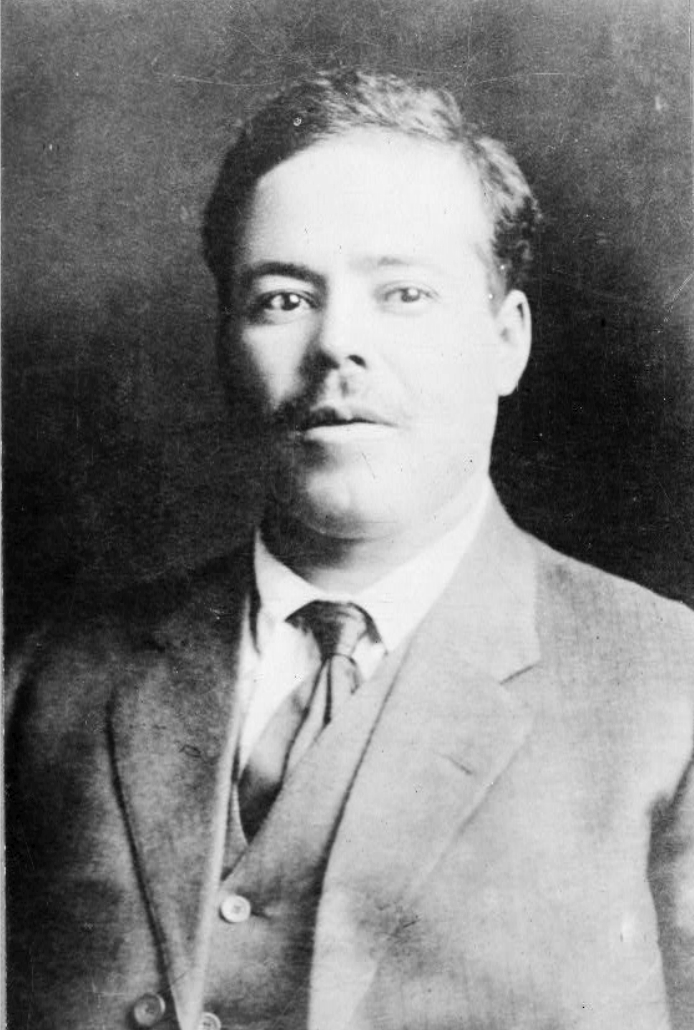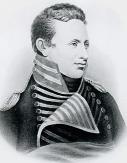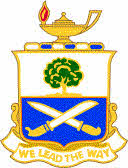|
U.S. 28th Infantry Regiment
Since the establishment of the United States Army in 1775, three regiments have held the designation 28th Infantry Regiment. The first was a provisional unit that was constituted on 29 January 1813 and served during The War of 1812. The second was a reorganization and redesignation of 2nd Battalion, 19th Infantry Regiment on 1 October 1866 for the American Indian Wars. This incarnation of the 28th Infantry Regiment lasted until 15 March 1869, when it was consolidated back into the 19th Infantry Regiment. The third version of the 28th Infantry Regiment is the one that has the permanent designation and history, and is the one this article is about. History Philippine–American War The regiment first saw combat service from December 1901 to January 1904 during the Philippine–American War where the regiment was heavily involved in counter-guerrilla operations. Upon returning to the U.S. the regiment relieved the 14th Infantry at Fort Snelling. During the years 1906–190 ... [...More Info...] [...Related Items...] OR: [Wikipedia] [Google] [Baidu] |
Infantry
Infantry is a military specialization which engages in ground combat on foot. Infantry generally consists of light infantry, mountain infantry, motorized infantry & mechanized infantry, airborne infantry, air assault infantry, and marine infantry. Although disused in modern times, heavy infantry also commonly made up the bulk of many historic armies. Infantry, cavalry, and artillery have traditionally made up the core of the combat arms professions of various armies, with the infantry almost always comprising the largest portion of these forces. Etymology and terminology In English, use of the term ''infantry'' began about the 1570s, describing soldiers who march and fight on foot. The word derives from Middle French ''infanterie'', from older Italian (also Spanish) ''infanteria'' (foot soldiers too inexperienced for cavalry), from Latin '' īnfāns'' (without speech, newborn, foolish), from which English also gets '' infant''. The individual-soldier term ''infantry ... [...More Info...] [...Related Items...] OR: [Wikipedia] [Google] [Baidu] |
Hanson Edward Ely
Major General Hanson Edward Ely (November 23, 1867 – April 28, 1958) was a United States Army officer in the late 19th and early 20th centuries. He served in several conflicts, including the Spanish–American War and World War I, and he received the Army Distinguished Service Medal and numerous other awards for his role in them. Military career Ely was born in Independence, Iowa, on November 23, 1867. He graduated from the United States Military Academy in 1891. His fellow classmates included Andrew Hero Jr., James Francis McIndoe, John W. Heavey, John Jewsbury Bradley and Edwin B. Winans, all future general officers. He was commissioned into the 22nd Infantry Regiment. After serving in Montana, North Dakota, and Nebraska, Ely became a Professor of Military Science and Tactics at the University of Iowa, serving in this position from 1897 to 1898. During the Spanish–American War, Ely reported to his regiment at Camp Wikoff and then served in the Philippines from ... [...More Info...] [...Related Items...] OR: [Wikipedia] [Google] [Baidu] |
1st Infantry Division (United States)
The 1st Infantry Division is a combined arms division of the United States Army, and is the oldest continuously serving division in the Regular Army. It has seen continuous service since its organization in 1917 during World War I. It was officially nicknamed "The Big Red One" (abbreviated "BRO") after its shoulder patch and is also nicknamed "The Fighting First." The division has also received troop monikers of "The Big Dead One" and "The Bloody First" as puns on the respective officially sanctioned nicknames. It is currently based at Fort Riley, Kansas. World War I A few weeks after the American entry into World War I, the First Expeditionary Division, later designated the 1st Infantry Division, was constituted on 24 May 1917, in the Regular Army, and was organized on 8 June 1917, at Fort Jay, on Governors Island in New York harbor under the command of Brigadier General William L. Sibert, from Army units then in service on the Mexico–United States border and at various A ... [...More Info...] [...Related Items...] OR: [Wikipedia] [Google] [Baidu] |
Pancho Villa
Francisco "Pancho" Villa (,"Villa" ''Collins English Dictionary''. ; ; born José Doroteo Arango Arámbula, 5 June 1878 – 20 July 1923) was a general in the Mexican Revolution. He was a key figure in the revolutionary movement that forced out President Porfirio Díaz and brought Francisco I. Madero to power in 1911. When Madero was ousted by a coup led by General Victoriano Huerta in February 1913, he led anti-Huerta forces in the Constitutionalist Army 1913–14. The commander of the coalition was civilian governor of Coahuila Venustiano Carranza. After the defeat and exile of Huerta in July 1914, Villa broke with Carranza. Villa dominated the Convention of Aguascalientes, meeting of revolutionary generals that excluded Carranza and helped create a coalition government. Emiliano Zapata and Villa ... [...More Info...] [...Related Items...] OR: [Wikipedia] [Google] [Baidu] |
Fort Snelling
Fort Snelling is a former military fortification and National Historic Landmark in the U.S. state of Minnesota on the bluffs overlooking the confluence of the Minnesota and Mississippi Rivers. The military site was initially named Fort Saint Anthony, but it was renamed Fort Snelling once its construction was completed in 1825. Before the American Civil War, the U.S. Army supported slavery at the fort by allowing its soldiers to bring their personal enslaved people. These included African Americans Dred Scott and Harriet Robinson Scott, who lived at the fort in the 1830s. In the 1840s, the Scotts sued for their freedom, arguing that having lived in "free territory" made them free, leading to the landmark United States Supreme Court case ''Dred Scott v. Sandford''. Slavery ended at the fort just before Minnesota statehood in 1858. The fort served as the primary center for U.S. government forces during the Dakota War of 1862. It also was the site of the encampment where eastern Dako ... [...More Info...] [...Related Items...] OR: [Wikipedia] [Google] [Baidu] |
Flickr - DVIDSHUB - Mountain Warfare Training (Image 5 Of 7)
Flickr ( ; ) is an American image hosting and video hosting service, as well as an online community, founded in Canada and headquartered in the United States. It was created by Ludicorp in 2004 and was a popular way for amateur and professional photographers to host high-resolution photos. It has changed ownership several times and has been owned by SmugMug since April 20, 2018. Flickr had a total of 112 million registered members and more than 3.5 million new images uploaded daily. On August 5, 2011, the site reported that it was hosting more than 6 billion images. Photos and videos can be accessed from Flickr without the need to register an account, but an account must be made to upload content to the site. Registering an account also allows users to create a profile page containing photos and videos that the user has uploaded and also grants the ability to add another Flickr user as a contact. For mobile users, Flickr has official mobile apps for iOS, Android, and an op ... [...More Info...] [...Related Items...] OR: [Wikipedia] [Google] [Baidu] |
American Indian Wars
The American Indian Wars, also known as the American Frontier Wars, and the Indian Wars, were fought by European governments and colonists in North America, and later by the United States and Canadian governments and American and Canadian settlers, against various American Indian and First Nation tribes. These conflicts occurred in North America from the time of the earliest colonial settlements in the 17th century until the early 20th century. The various wars resulted from a wide variety of factors, the most common being the desire of settlers and governments for lands that the Indian tribes considered their own. The European powers and their colonies also enlisted allied Indian tribes to help them conduct warfare against each other's colonial settlements. After the American Revolution, many conflicts were local to specific states or regions and frequently involved disputes over land use; some entailed cycles of violent reprisal. As settlers spread westward across North America ... [...More Info...] [...Related Items...] OR: [Wikipedia] [Google] [Baidu] |
19th Infantry Regiment (United States)
The 19th Infantry Regiment ("Rock of Chickamauga") is a United States Army infantry regiment which is assigned to the US Army Training and Doctrine Command, with the assignment of conducting Basic and Advanced Infantry Training. Lineage 1st Battalion Civil War *Constituted 1861-05-03 in the Regular Army as the 1st Battalion, 19th Infantry Regiment *Organized 1861-07-09 at Indianapolis, Indiana Indian Wars *Reorganized and redesignated 1866-10-01 as the 19th Infantry Regiment *Consolidated 1869-03-15 with the 28th Infantry Regiment (see Below) and consolidated unit designated as the 19th Infantry Regiment. World War I *Assigned 1918-07-29 to the 18th Division *Relieved 1919-02-14 from assignment to the 18th Division Garrison period *Took part in quelling the 1921 miners' rebellion at the Battle of Blair Mountain in Logan, WV. This was the largest labor battle in US history and took three infantry regiments to halt. The 19th Infantry took the lead role, traveling up the Spruc ... [...More Info...] [...Related Items...] OR: [Wikipedia] [Google] [Baidu] |
The War Of 1812
The War of 1812 (18 June 1812 – 17 February 1815) was fought by the United States of America and its indigenous allies against the United Kingdom and its allies in British North America, with limited participation by Spain in Florida. It began when the United States declared war on 18 June 1812 and, although peace terms were agreed upon in the December 1814 Treaty of Ghent, did not officially end until the peace treaty was ratified by Congress on 17 February 1815. Tensions originated in long-standing differences over territorial expansion in North America and British support for Native American tribes who opposed US colonial settlement in the Northwest Territory. These escalated in 1807 after the Royal Navy began enforcing tighter restrictions on American trade with France and press-ganged men they claimed as British subjects, even those with American citizenship certificates. Opinion in the US was split on how to respond, and although majorities in both the House and Senat ... [...More Info...] [...Related Items...] OR: [Wikipedia] [Google] [Baidu] |
Regiment
A regiment is a military unit. Its role and size varies markedly, depending on the country, service and/or a specialisation. In Medieval Europe, the term "regiment" denoted any large body of front-line soldiers, recruited or conscripted in one geographical area, by a leader who was often also the feudal lord ''in capite'' of the soldiers. Lesser barons of knightly rank could be expected to muster or hire a company or battalion from their manorial estate. By the end of the 17th century, infantry regiments in most European armies were permanent units, with approximately 800 men and commanded by a colonel. Definitions During the modern era, the word "regiment" – much like "corps" – may have two somewhat divergent meanings, which refer to two distinct roles: # a front-line military formation; or # an administrative or ceremonial unit. In many armies, the first role has been assumed by independent battalions, battlegroups, task forces, brigades and other, similarly s ... [...More Info...] [...Related Items...] OR: [Wikipedia] [Google] [Baidu] |
United States Army
The United States Army (USA) is the land service branch of the United States Armed Forces. It is one of the eight U.S. uniformed services, and is designated as the Army of the United States in the U.S. Constitution.Article II, section 2, clause 1 of the United States Constitution (1789). See alsTitle 10, Subtitle B, Chapter 301, Section 3001 The oldest and most senior branch of the U.S. military in order of precedence, the modern U.S. Army has its roots in the Continental Army, which was formed 14 June 1775 to fight the American Revolutionary War (1775–1783)—before the United States was established as a country. After the Revolutionary War, the Congress of the Confederation created the United States Army on 3 June 1784 to replace the disbanded Continental Army.Library of CongressJournals of the Continental Congress, Volume 27/ref> The United States Army considers itself to be a continuation of the Continental Army, and thus considers its institutional inception to be th ... [...More Info...] [...Related Items...] OR: [Wikipedia] [Google] [Baidu] |
29th Infantry Regiment (United States)
The 29th Infantry Regiment ("Pioneers") is a unit of the United States Army first formed in 1813. History Previous 29th Regiments The first 29th Infantry was constituted on 29 January 1813, and served in the War of 1812. Following this, the regiment was merged with the 6th Infantry. The second 29th Infantry was constituted on 3 May 1861, as the 3d Battalion, 11th Infantry, one of the nine "three-battalion" regiments of regulars, each battalion containing eight companies of infantry, in contrast to the original ten regular regiments of infantry, which were organized on the traditional ten-company line. Following the Civil War, the Army was reorganized by Congress in July 1866, and the 11th was divided into three regiments, each battalion receiving two additional companies and being organized along traditional lines. The 1st Battalion retained the designation of the 11th Infantry, while the 2nd Battalion became the 20th Infantry and the 3rd Battalion the 29th Infantry. The 29 ... [...More Info...] [...Related Items...] OR: [Wikipedia] [Google] [Baidu] |

.png)





